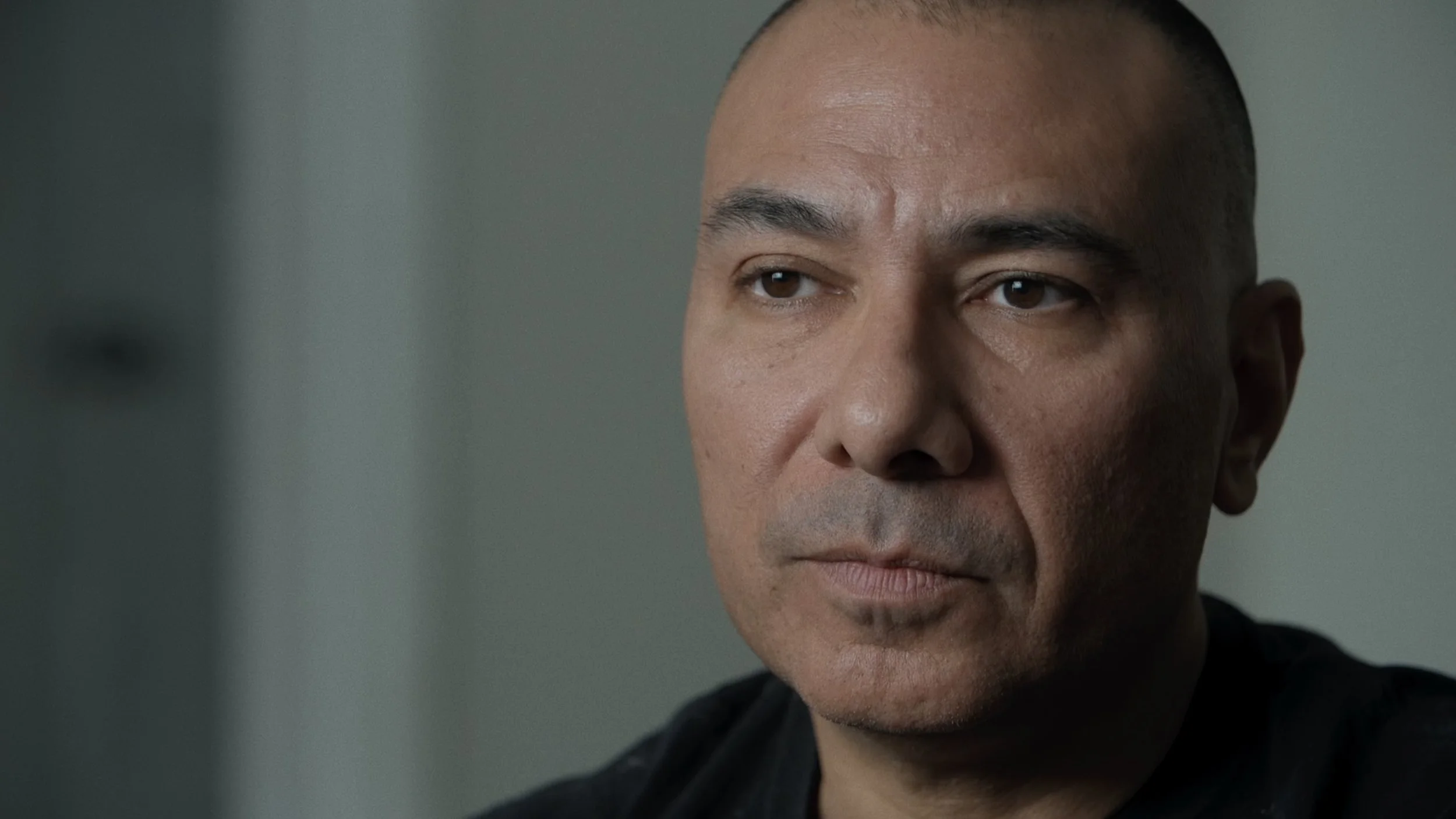Impact Report
THE STRIKE
SEPTEMBER 2025
~toch2
Introduction
The Represent Justice Impact Campaign for The Strike utilized the film's power to expose the solitary confinement and honor those who resisted it. Through screenings, dialogues, digital storytelling, and policymaker engagement, the campaign fostered conversation and equipped people to join the movement. By amplifying directly impacted voices, we brought their stories to public discourse, linking them to broader reform. This report details our work's impact, engaged audiences, and The Strike's lasting contributions to justice.
4,000
Attendees to screenings and events
5,844
Actions to support policies to end or limit solitary confinement
89%
Of audiences likely to support laws that end or limit solitary confinement
128
Speaking appearances by film participants and film team (85% system-impacted speakers)
About The Strike
The Strike is a feature documentary that tells the story of a generation of California men who endured decades of solitary confinement and, against all odds, launched the largest hunger strike in U.S. history. Directed by JoeBill Muñoz and Lucas Guilkey.
Amidst the redwood trees on the California-Oregon border sits one of the most infamous prisons in US history. Pelican Bay is a labyrinthine construction of solid cement blocks – a supermax prison – opened in 1989 and designed specifically for mass-scale solitary confinement. For decades, it held men alone in tiny cells, indefinitely. Then one day in 2013, 30,000 incarcerated individuals went on a hunger strike.
Told through the stories of the men who bore the brunt of this practice, The Strike goes beyond making a case against solitary confinement; it illuminates the power of organizing and resistance led by those incarcerated.
The Strike premiered at Hot Docs in 2024 and aired on PBS’ Independent Lens on February 3, 2025.
Impact Campaign Participants
About The Issue
People in solitary are confined to a cell for 22-24 hours a day, with only one hour of recreation, which is often alone. They have limited or no access to educational or rehabilitative programs, family visits, or human contact.
Represent Justice is dedicated to amplifying the voices of those who have firsthand experience with the injustices of the carceral system. Solitary confinement stands as one of the most inhumane practices of incarceration, leading to severe and lasting harm. Ending its use is crucial for safeguarding the rights and welfare of all individuals held in detention or prison, and for transforming the system into one that centers dignity and humanity.
122,000
People in the U.S. are held in solitary confinement daily
A man endures over 6 weeks of a life-threatening hunger strike (dramatic reenactment from The Strike)
Audience and Media Reach
Represent Justice & The Strike: Our Collaboration
The Represent Justice Film & Series Program offers in-kind impact campaigns to independent films, like The Strike, whose storytelling and creative direction feature system-impacted individuals at the helm.
The Strike weaves together the personal stories of the men who bore the brunt of indefinite solitary confinement. As our 2025 Open Call film impact campaign recipient, we are honored to have collaborated with the film team on a 6-month campaign that organized screenings and held discussions around the country, and highlighted the stories of key characters and their lived experiences as solitary survivors and movement organizers.
The film has surpassed 100 screenings since its release. Here’s a look at its reach under Represent Justice’s tenure.
78
Screenings organized
4,000
Attendees at events
55
Cities reached
166,000
Social media views
142,000
Opens on 27 emails
Media Coverage
National and local press coverage generated buzz
The Strike garnered national attention throughout the campaign, receiving more than 40 press mentions and reaching a cumulative potential audience of over 650 million viewers per month.
Engagement & Response
“We loved the partnership [with Represent Justice]. It was great and it brought thousands of people together to engage in this movement!”
Stories alone don’t shift systems; people do. This impact campaign was designed to build collective power that honors the efforts of the Pelican Bay hunger strikers by equipping audiences with the knowledge and pathways to organize and support local actions to end solitary confinement. Our partnership with Unlock the Box was a key part of the impact campaign strategy. The collaboration provided screening audiences, hosts and digital audiences with opportunities to transform the film’s inspiration into action.
-
Represent Justice and The Strike team worked with Unlock the Box to leverage screenings to bring new supporters to Unlock the Box campaigns in states across the country. Even amid challenging political climates, the drive to end solitary confinement has never been stronger. This past year, proposals to expand the use of solitary confinement dropped by 82% — falling from 34 bills just two years ago to only six in 2025. Meanwhile, momentum to curb or abolish the practice surged to historic levels.
Lawmakers in 29 states introduced 94 bills aimed at restricting solitary confinement, and 12 states enacted reforms: Arizona, Colorado, Hawai’i, Illinois, Louisiana, Maine, Maryland, Nevada, New Hampshire, Pennsylvania, Virginia, and Utah. These gains stemmed from deliberate strategy, persistent advocacy, and the leadership of directly impacted people like Dolores Canales, Jack Morris, and Michael Saavedra.
Audience Insights



Audience Actions Taken
5,125
emails sent to California legislators in support of AB701
719
emails sent in support of reinstating the HALT Act in New York
Centering the Lived Experience of System-Impacted Participants
128
Speaking Appearances by film participants and film team (85% system-impacted speakers)
5
Screenings hosted inside of correctional facilities
Audience Feedback
Result: Systems Change
“[After our screening] we continue an open dialogue with our students who are survivors of solitary confinement and encourage a community with trauma-informed practices for our system-impacted students.”
The Strike Impact Campaign was designed with Represent Justice’s four pillars of change in mind: Structural Change, Cultural Change, Capacity Building, and Narrative Change. By embedding the film in legislative advocacy, community spaces, academic institutions, and correctional facilities, the film advanced policy conversations, fostered cultural healing, elevated the leadership of system-impacted individuals, and reshaped how communities talk about solitary confinement.
“AJRC is working to defeat the construction of 3000 bed prison in Franklin County Arkansas. The design has not been completed however it’s anticipated that there will be solitary confinement facilities.”
Advocacy & Policy Reform
Through our partnership with Unlock the Box state-based campaigns, the film became a powerful tool in advancing legislative and policy reform of solitary confinement. Partners hosted targeted advocacy screenings with state lawmakers, organizers, and community stakeholders. These events created space to underscore the human cost of solitary confinement. We also worked with Unlock the Box to enable audiences at these screening events and our network of supporters to take urgent action to support legislation in New York and California addressing the impacts of solitary confinement, yielding 5,488 actions to contact legislators. By embedding the film within broader policy strategies, partners were able to leverage storytelling to catalyze structural change.
San Francisco Public Defenders screening
“Following the powerful screening of The Strike in Tallahassee, I’ll continue statewide efforts to expand the Florida Coalition on Solitary’s survivor & lockdown survivors, community education, coalition building, and legislative advocacy.”
Strengthening Communities
Community screenings with solitary survivors, hunger strikers, and their families served as both healing and mobilizing events. These gatherings were designed not only to engage audiences with the film’s narrative but also to create affirming spaces where impacted communities could celebrate hard-won victories, honor the sacrifices of those who fought for reform, and build renewed momentum for the future. By centering survivor voices, the screenings helped shift cultural narratives—from isolation and invisibility to resilience and collective action. They also fostered dialogue across diverse audiences, reinforcing the importance of cultural change as a precursor to systemic reform.
Rice Cinema screening
Elevating System-Impacted Leadership
“One of the most important pieces created in our movement.”
The film has also been used as a capacity-building tool in academic and legal settings. 14 law schools across the country (including 6 of the top 10 in the nation) hosted screenings, many of which included post-film panels featuring Michael Saavedra, a film participant, solitary survivor, who is now preparing to be a law student.
These panels deepened understanding of the lived realities behind legal theory, inspiring the next generation of advocates and lawyers to pursue justice-oriented careers. For students, engaging with Michael and others directly connected the legal frameworks they study with the lived experiences of those most impacted by incarceration. This combination of education and lived expertise builds capacity for long-term change by shaping more empathetic, informed, and action-oriented legal professionals.
Harvard Law School screening
“This film both broke and restored my faith in humanity all at once.”
Shifting Discourse
The Strike reached incarcerated audiences through its national broadcast on PBS. Building on this reach, Dolores Canales, a movement leader and one of the film participants, brought the film inside five youth and adult detention facilities: Los Padrinos Juvenile Hall, Donovan Prison, Camp Kilpatrick & Hoops4Justice, and Orange County Juvenile Hall. These in-person screenings deepened that reach by creating opportunities for collective viewing and facilitating dialogue.
Santa Rosa Junior College
Take Action: Join the fight to End Solitary Confinement
-

Watch The Film
The Strike is currently streaming on PBS Passport
-

Host A Screening
Bring The Strike to your next community event
-

Urge Governor Hochul to defend the HALT Solitary Confinement Act
Tell New York to provide basic human rights in NY state prisons and implement the HALT Solitary Confinement Act.
-

Learn About Unlock The Box
Discover how the Unlock the Box campaign is leading the fight to end solitary confinement in the United States. Learn more about their mission, strategies, and how you can get involved.
Request A Speaker
-

Dolores Canales
Dolores Canales is an activist, organizer, and the Director of Community Outreach for The Bail Project.
-

Jack Morris
Jack Morris is the program director at St. John's Community Health in Los Angeles, here he works with justice-impacted communities and those exiting incarceration by providing re-entry services based on the social determinants of health.
-

Michael Saavedra
Michael Saavedra, who spent 15 years in solitary confinement, transformed his incarceration into a journey of self-education and legal advocacy, and since his 2017 release, has become a scholar and national organizer working to abolish mass incarceration and uplift directly impacted communities.















